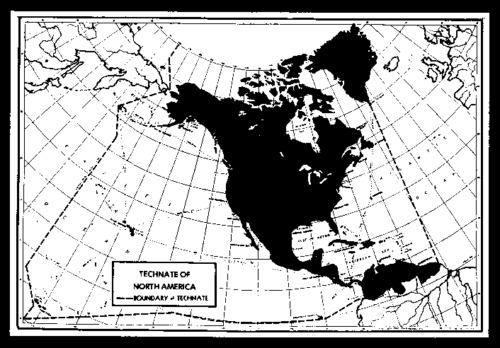The BBC is spraying disinformation about Monroe Doctrine history in order to normalize Trump’s rejection of doctrinal frameworks entirely. Some reporters mistake this for historical analysis. Here’s an example from Allan Little:
When it was announced by the fifth president of the US, James Monroe, the doctrine that bears his name was widely seen as an expression of US solidarity with its neighbours… But the doctrine quickly became an assertion of Washington’s right to dominate its neighbours and use any means, up to and including military intervention, to bend their policies into alignment with American interests. President Theodore Roosevelt, in 1904, said it gave the US “international police power” to intervene in countries where there was “wrongdoing”. So could it be that President Trump’s re-interpretation of the Monroe Doctrine is simply part of a continuum in US foreign policy?
No.
Little’s piece does something sophisticated and dangerous: it uses a valid critique of American hypocrisy to launder an analytical collapse.
The piece opens with a Pakistani student’s observation from 2002 that the rules-based international order was “partially false”—that the strongest exempted themselves when convenient, that trade rules were enforced asymmetrically, that international law applied with varying rigor depending on identity. This critique is correct. American hypocrisy is real. Guatemala, Chad, Indonesia, Somalia, Iran, Grenada, Panama—the record is damning.
But Little makes a fatal logical leap: because the US violated rules it claimed to uphold, Trump’s rejection of rules entirely is just “more of the same.”
That’s the sleight of hand. The Pakistani student’s critique depends on there being rules to violate. Hypocrisy requires a standard being betrayed. You can only call American intervention hypocritical if there’s a framework against which to measure the betrayal.
Trump’s National Defense Strategy announces there is no standard. It explicitly purges the “rules-based international order,” calling it “cloud-castle abstractions.” It replaces doctrine with “concrete interests first”—the sovereign decides, justification follows.
That’s not Monroe perverted. That’s Monroe rejected.
The difference is categorical: a policeman who takes twenty dollars to look the other way is corrupt. A policeman who announces “I am the law” is something else. The Nuremberg Trials drew this distinction for a reason.
Little pulls historian Jay Sexton into his frame, asking whether Trump’s “unpredictability” gives America “a 19th century feel.” Perhaps excited to discuss his expertise, Sexton accepts the premise and speaks about Great Power rivalries from 1815 onward.
Wrong question, wrong century.
Nineteenth-century balance-of-power politics had rules—that’s what made it a “balance.” Monroe created a framework. Roosevelt perverted that framework. Trump says framework? What framework? There’s only me.
It’s like the BBC asking whether Bernie Madoff’s interpretation of retirement savings represents a continuum on Wall Street. Madoff was committing fraud while claiming to invest. The crime isn’t an aggressive interpretation on an infinite slope. The crime is that no interpretation was happening at all. The activity being claimed wasn’t the activity being performed.
The interventions Little lists—Iran ’53, Guatemala ’54, Grenada ’83, Panama ’89—were all justified through frameworks. Anti-communism. Protecting democracy. Fighting drugs. The justifications were often lies, but the lies mattered. They created accountability surfaces. You could argue the US was violating its stated principles.
Trump’s “concrete interests first” eliminates the accountability surface. There’s no principle to violate. The justification is generated after the decision—by algorithmic slop if necessary.
Check the simple math. Trump applying Monroe would mean China is the threat to keep out of the Western Hemisphere. That’s foundational to Monroe. Yet the Pentagon was ordered to deprioritize China. The Trump NDS downgrades threats to the hemisphere while prioritizing “credible military options” against American neighbors and allies. China is opening trade with Canada and cementing itself in Latin America, yet Trump targets Canada while ignoring the thing Monroe would have worried about most.
That’s not Monroe extended. It’s Monroe inverted.
| Monroe 1823 | Trump 2026 |
| Drafted by Adams, debated in cabinet, presented to Congress | Unilateral executive, note-card attention span |
| Welcomed by regional leaders as solidarity against colonization | Threatening neighbors and allies with military force |
| Framework to keep external powers out | “Concrete interests first”—no framework, external threats deprioritized |
| Created predictability by design | Unpredictability by design |
| Middle power proposing defensive solidarity | Superpower rejecting all constraint |
| Progressive. Embraced order and institutions | Regressive. Explicit rejection of “rules-based order” as abstraction |
Little spends considerable space on Canadian Prime Minister Mark Carney’s Davos speech, where Carney called for “middle powers” to unite against Great Power politics. Little frames this as a response to Trump abandoning the rules-based order. He doesn’t notice the irony: that’s exactly what Monroe was doing in 1823.
The US wasn’t a superpower then. It was a post-colonial republic barely four decades old, addressing other post-colonial republics, proposing mutual defense against the actual great powers—European empires. Monroe Doctrine was middle-power solidarity against imperial aggression.
Carney is the one who actually calls for a return to Monroe’s original posture. Trump is the empire Monroe organized against. Little cites both without seeing that his “continuum” runs in the wrong direction.
The actual American lineage for Trump isn’t Monroe at all if you are familiar with Jackson’s Florida campaign in the 1810s. The future President manufactured security pretexts, delegitimized indigenous governance, deployed overwhelming force, ignored legal constraints. Mussolini studied this playbook for Ethiopia in 1935. Hitler industrialized it for the Sudetenland in 1938. Each iteration refined the template.

What we call this today is decisionism—Carl Schmitt’s theoretical framework that made Hitler’s foreign policy formally unpredictable by design. The sovereign decides the exception. All justification flows from that decision rather than constraining it. This is Trump, who calls it his “weave.”
Little’s piece won’t see this. His 19th-century goggles are what you wear when 1933 is too frightening to face. Trump prefers the misdirection, as he doesn’t want to be recognized: Those teenage Epstein girls were just for massage.
Monroe was admittedly very racist, in the typical elite way of 1823—ambient, paternalistic, fearful. He wasn’t choosing a regression to centuries before him when he proposed a way forward. He was creating a progressive framework to be measured against.
Trump in 2025 is also very racist yet inverted to Monroe, consciously regressive. After the documented American genocide. After the Holocaust. After decolonization. After Civil Rights. After the science demolished race theory. After Reagan knew through the ’60s, ’70s, and ’80s that he had to launder his racism through dog whistles.
This is the deliberate choice of race-based regression backed by infrastructure to enforce it at scale. The BBC normalizes this hate platform by grounding it in something it is not.
Three reasons Trump could never be Monroe, and everyone should stop the precedent laundering:
- Monroe Doctrine was drafted by John Quincy Adams, debated in cabinet, presented to Congress. Trump doesn’t care about drafts, debates, or separation of powers. He lights fires and focuses on the fire trucks.
- Monroe Doctrine was welcomed by regional leaders as forward-looking solidarity against past colonial threats. Trump is the threat that Monroe was trying to prevent. Let that marinate.
- Monroe supported law, order, institutions, procedures, consultation, and predictability. He didn’t reject progress; he built and sold solidarity to regional allies. Trump announces an abolition of frameworks, bullying allies, while wearing Monroe’s corpse as costume.
Criticism of rules is grounds for improvement. Rejection of rules is their total loss—just loss.
The BBC’s “continuum” is a slippery slope fallacy. There’s no slope when discussing Trump and Monroe. There’s a cliff, because Monroe evaporates under Trump.
That’s not precedent. That’s laundering.


